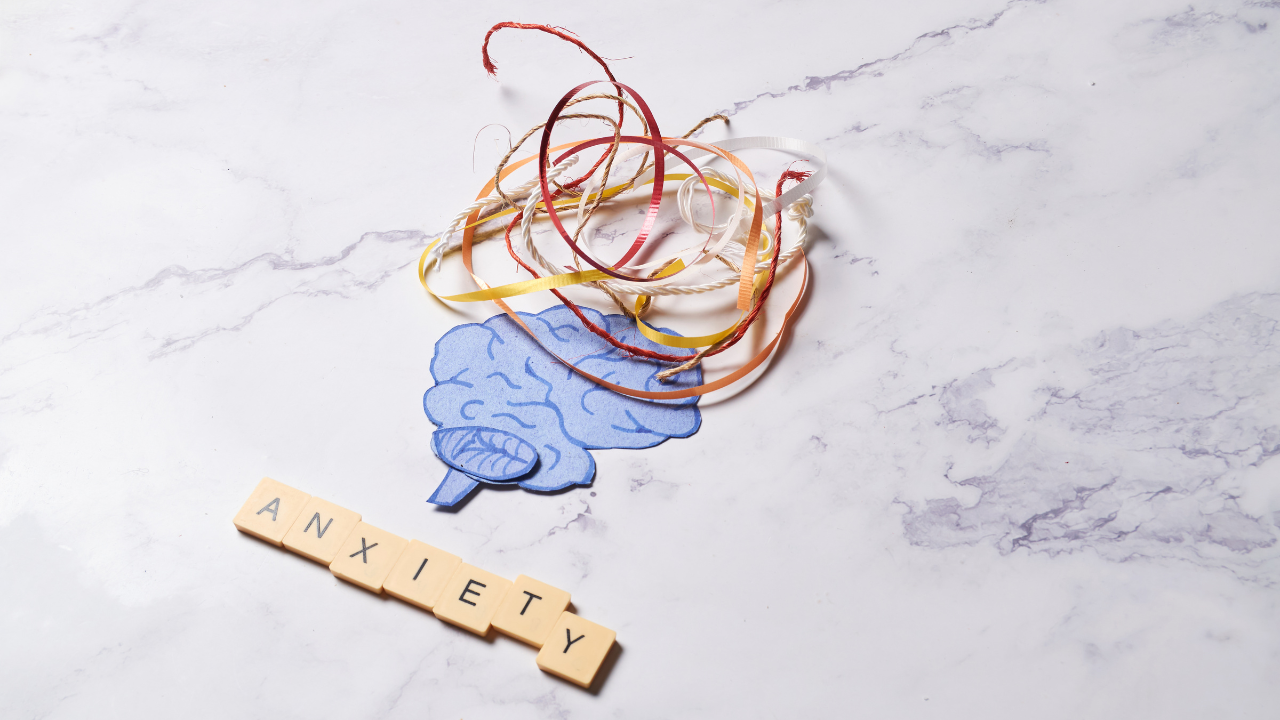Breaking Free from Anxiety: Understanding Your Response Type
Nov 07, 2023
In my ten years of diving deep into the world of anxiety, I've stumbled upon something pretty profound. There are these four intriguing ways we respond to anxiety, and each one has a unique impact on our emotional well-being. So, in this article, I'm excited to take you on a journey to explore these response types and how they can either keep us trapped in the anxiety cycle or set us free. Yep, we're about to dive into the fascinating world of our own responses to anxiety
Anxious Fixation:
Description:
Anxious fixation, as the name aptly suggests, entails an obsessive fixation on anxiety itself, paradoxically resulting in an escalation of anxious feelings. It's akin to an unwelcome guest that, instead of leaving, is given a prominent seat at the table of our thoughts.
Symptoms:
This response type manifests through relentless symptom-checking, incessant worry about future anxiety, and a relentless quest for reassurance. Diante illustrates this with a poignant example, shedding light on how this response type tightly grips those battling health anxiety.
Example:
In the world of health anxiety, individuals tend to fixate on bodily sensations. They scrutinize every minor twitch or flutter, fearing that something sinister lurks beneath the surface. The result? An endless loop of heightened anxiety, a continuous quest for reassurance, and a struggle to regain control. It's a classic case of anxious fixation.
Nervous Control:
Description:
Nervous control involves a concerted effort to regain control over anxiety, paradoxically leading to heightened nervousness. It's like trying to tame a wild stallion—every attempt to rein it in only fuels its restlessness.
Symptoms:
The symptoms of nervous control manifest in a desperate quest to conquer anxiety. Individuals go to great lengths, overcommitting to self-care practices, meticulously researching strategies, and embracing any suggestion that promises relief. Diante sheds light on how high-functioning individuals, often seen as pillars of composure, can suddenly find themselves in the throes of nervous control when anxiety unexpectedly barges in.
Example:
Picture a highly organized, type-A personality suddenly thrust into the disorienting world of anxiety. They become fervently dedicated to self-improvement, adopting every possible strategy—healthier eating, increased sleep, meditation, and more. It's a relentless pursuit of control that ironically heightens their nervousness.
Shameful Submission:
Description:
Shameful submission is a response characterized by overwhelming anxiety, leading to withdrawal from social activities and a profound sense of being a burden. It's as if anxiety wears the crown, casting its dark shadow over one's self-esteem.
Symptoms:
The symptoms of shameful submission manifest as low mood, profound shame regarding one's anxiety, self-imposed isolation, and an aversion to seeking help. Diante explores how individuals with this response type grapple with feelings of inadequacy and an overwhelming belief that they are a burden to others.
Example:
Imagine someone drowning in a sea of anxiety, their self-worth eroding as they withdraw from social circles. They resist reaching out for help, convinced that their anxiety makes them a nuisance to others. It's a heart-wrenching journey of internal shame and isolation—a classic case of shameful submission.
Empowered Acceptance:
Description:
Empowered acceptance stands as the beacon of hope in the realm of anxiety responses. It represents a state where anxiety is acknowledged, comprehended, and embraced as a natural emotional response. It's akin to making peace with a turbulent sea, understanding its ebbs and flows.
Symptoms:
Individuals who embrace empowered acceptance exude a sense of empowerment in their ability to cope with anxiety. They harbor no overwhelming fear; instead, they possess a clear understanding of anxiety's presence. Diante paints a vivid picture of this response type by sharing her husband's journey toward embracing empowered acceptance.
Example:
In this response type, anxiety is not viewed as a malevolent force to be feared but as a companion to be understood. Diante's husband serves as a testament to this response, where anxiety is simply acknowledged for what it is—an ordinary emotional response. The anxiety may still surge at times, but it no longer strikes fear into their hearts.

How Do I Know My Response Type?
Understanding your primary response type to anxiety serves as the pivotal first step toward achieving empowered acceptance. And thankfully there is a quick quiz you can take to figure out exactly how you respond to anxiety! Click here to use this self-discovery tool as a compass that can guide you on your journey to managing anxiety effectively.
Conclusion:
Anxiety need not dictate the course of your life. By gaining insight into your response type and striving for empowered acceptance, you can emancipate yourself from the relentless cycle of anxiety. Take the quiz, as it's a mirror that reflects your unique response, and stay tuned for upcoming insights on how to shift towards the serene shores of empowered acceptance. In this journey, remember that understanding is the first step to transformation, and you're not alone in your pursuit of inner peace.
